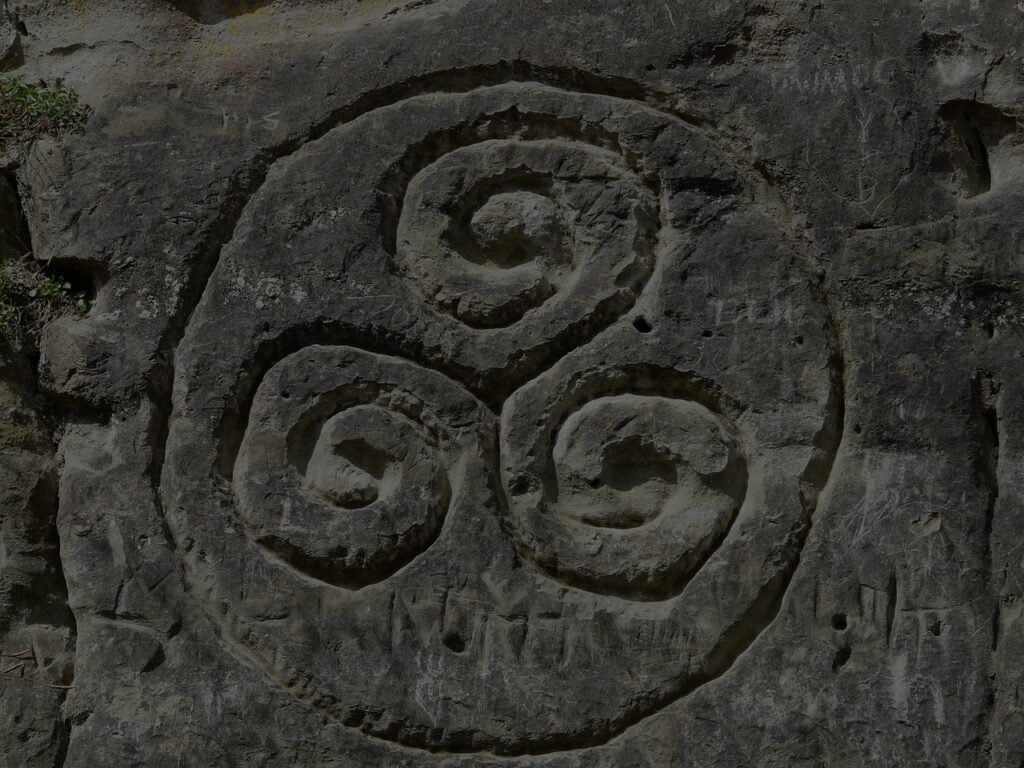Dreams have long been a source of fascination for humankind, with their mysterious messages and symbolic imagery captivating our imagination for centuries. In particular, daemonic dreams, with their intensity and otherworldly quality, hold a special place in the realm of dream interpretation. These dreams, often filled with dark and unsettling images, can leave a lasting impact on our psyche and provoke deep reflections on our innermost fears and desires.
In this blog post, we will delve into the world of daemonic dreams, exploring their meaning, symbolism, and interpretation. We will discuss the significance of dreams in human psychology and culture, and the role they play in guiding us through our subconscious thoughts and emotions. Join us as we uncover the hidden messages behind these enigmatic dreams, and learn how to decode their powerful symbolism to gain a deeper understanding of ourselves. Get ready to embark on a journey through the depths of your mind and unlock the secrets hidden within your daemonic dreams.
Daemonic Dreams Symbolism
Daemonic dreams are often seen as symbolic and meaningful, carrying messages or insights about the dreamer’s inner psyche. These dreams can be rich in symbolism, drawing from various psychological, mythological, and cultural beliefs to convey their message.
In psychology, daemonic dreams are often seen as a reflection of the dreamer’s repressed desires or fears. The term “daemonic” comes from the Greek word “daimon,” which was used to describe a guiding spirit or inner voice. In this context, daemonic dreams may represent the dreamer’s unconscious mind trying to communicate important information that has been suppressed or ignored.
In mythology, daemonic dreams are often associated with figures such as demons, spirits, or other supernatural beings. These symbols may represent the darker aspects of the dreamer’s psyche or the presence of external forces influencing their thoughts and emotions.
Culturally, daemonic dreams may have different meanings depending on the beliefs and traditions of the dreamer. For example, in some cultures, daemonic dreams may be seen as a sign of spiritual possession or communication with malevolent entities. In others, daemonic dreams may be interpreted as a call to confront and overcome one’s inner demons.
One common symbol in daemonic dreams is the presence of shadowy figures or monsters, representing the dreamer’s fears and insecurities. These symbols may indicate unresolved issues or traumas that need to be addressed in order to move forward in life.
Another common symbol in daemonic dreams is the feeling of being chased or hunted, which may symbolize a sense of guilt or shame that the dreamer is trying to avoid. These dreams may be calling attention to the need to confront and resolve these feelings in order to achieve inner peace.
Overall, daemonic dreams can be a powerful tool for self-reflection and introspection. By exploring the symbolism behind these dreams, one can gain valuable insights into their subconscious mind and emotions, helping them to better understand themselves and navigate the challenges of everyday life.
Daemonic Dreams Interpretation
Daemonic dreams, also known as dark or disturbing dreams, can be unsettling and perplexing for the dreamer. These dreams often contain symbols and themes that reflect unresolved fears, anxieties, or repressed emotions in the dreamer’s unconscious mind.
One potential symbol in a daemonic dream could be a dark figure or demon, representing internal conflicts or self-destructive tendencies. The presence of such a figure may suggest that the dreamer is grappling with inner demons or facing challenges that feel overwhelming or oppressive. The setting of the dream, such as a gloomy landscape or eerie atmosphere, could further reinforce feelings of fear or unease.
Emotions experienced in daemonic dreams, such as terror, helplessness, or despair, can also provide valuable insights into the dreamer’s psyche. These intense emotions may indicate underlying stress, trauma, or unresolved issues that are manifesting in the dream state. The dreamer’s actions in the dream, such as fleeing from a threat or confronting a dark entity, may reflect their coping mechanisms or defense mechanisms in waking life.
It is essential to consider the context of the dream and the dreamer’s personal experiences to unravel the underlying meaning of daemonic dreams. For example, if a dreamer is experiencing significant stress at work or in their personal relationships, this could manifest as a dark and menacing dream. By exploring the emotions, actions, and symbols within the dream, the dreamer can gain valuable insights into their subconscious thoughts and feelings.
To interpret a daemonic dream, the dreamer may benefit from journaling about the dream, discussing it with a therapist or counselor, or engaging in introspective practices such as meditation or dream analysis. By delving deeper into the symbolism and themes of the dream, the dreamer can uncover hidden fears, desires, or conflicts that may be impacting their mental and emotional well-being.
Ultimately, daemonic dreams serve as a doorway to the unconscious mind, offering the dreamer an opportunity to confront and process their deepest fears and anxieties. By exploring the rich symbolism and themes within these dreams, the dreamer can gain valuable insights into their inner world and take steps towards healing and personal growth.
Dealing With Daemonic Dreams
Daemonic dreams, also known as dark or disturbing dreams, can be quite unsettling and troubling for those who experience them. These dreams often involve nightmarish imagery and themes that can leave individuals feeling scared, anxious, or overwhelmed upon waking. Common challenges associated with daemonic dreams include feelings of fear, unease, and confusion about the meaning and purpose of these dreams.
One strategy for managing daemonic dreams effectively is to practice relaxation techniques before bed. Engaging in activities such as deep breathing, meditation, or gentle stretching can help calm the mind and body, making it easier to fall asleep and potentially reducing the likelihood of experiencing disturbing dreams. Additionally, incorporating a soothing bedtime routine can help create a sense of peace and security before drifting off to sleep.
Another helpful approach is to explore the underlying emotions and thoughts that may be triggering daemonic dreams. Keeping a dream journal can be a useful tool for tracking recurring themes or patterns in your dreams, which can provide insight into potential sources of stress or anxiety in your waking life. By identifying and addressing these underlying issues, you may be able to reduce the frequency or intensity of daemonic dreams.
It’s important to remind yourself that dreams are a natural and normal part of the sleep cycle, and that experiencing daemonic dreams does not necessarily mean anything negative about who you are as a person. These dreams are often a manifestation of unconscious thoughts, fears, or desires, and engaging with them can offer valuable opportunities for self-reflection and personal growth.
If daemonic dreams continue to cause distress or interfere with your ability to get a good night’s sleep, consider seeking support from a mental health professional. A therapist or counselor can help you explore and process the emotions and thoughts underlying these dreams, as well as develop coping strategies to manage and reduce their impact on your well-being.
Overall, it’s important to remember that you are not alone in experiencing daemonic dreams, and that there are effective ways to address and manage the challenges they present. By practicing self-care, seeking support when needed, and approaching these dreams with curiosity and compassion, you can navigate through this experience with resilience and strength.
FAQ For Daemonic Dreams
1. What are daemonic dreams and what do they signify?
Daemonic dreams are vivid, intense dreams that often involve dark or unsettling imagery. These dreams can symbolize repressed emotions, unresolved conflicts, or hidden desires within the dreamer’s subconscious mind.
2. Are daemonic dreams dangerous or harmful?
Daemonic dreams are not typically harmful in themselves, but they can be distressing or unsettling for the dreamer. However, these dreams can also provide valuable insights into the dreamer’s psyche and may offer an opportunity for personal growth and self-awareness.
3. How can I interpret the meaning of my daemonic dreams?
Interpreting the meaning of daemonic dreams can be challenging, as they often involve complex symbolism and hidden messages. Keeping a dream journal, consulting with a therapist or dream interpreter, and exploring the emotions and themes present in the dream can help unravel its significance.
4. Can daemonic dreams be a sign of mental health issues?
While daemonic dreams are not necessarily a sign of mental health issues, they can sometimes be a reflection of underlying psychological struggles or unresolved trauma. If these dreams become frequent or cause significant distress, it may be beneficial to seek support from a mental health professional.
5. How can I cope with daemonic dreams and reduce their frequency?
To cope with daemonic dreams and reduce their frequency, it can be helpful to practice relaxation techniques before bedtime, such as meditation or deep breathing exercises. Creating a calming bedtime routine, avoiding stimulating activities before sleep, and addressing any underlying stress or anxiety can also help decrease the occurrence of these intense dreams.
















